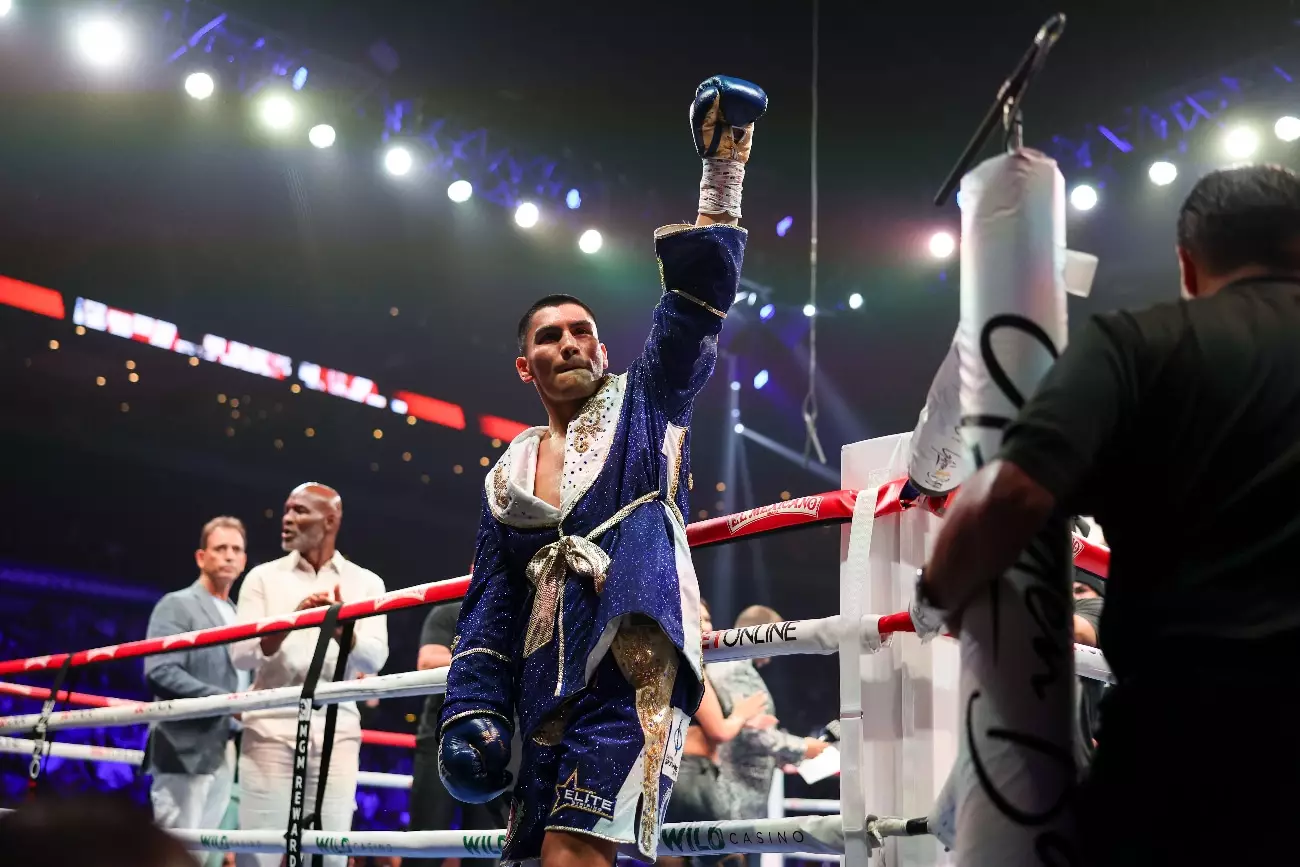The boxing world was buzzing with excitement over the potential clash between WBC interim junior middleweight champion Vergil Ortiz Jr. and undefeated contender Jaron ‘Boots’ Ennis, scheduled for February 22 in Riyadh, Saudi Arabia. However, anticipation turned to disappointment when it was announced that the fight would not take place, with no agreement reached between the two fighters. This development has left fans wondering about the underlying reasons for the breakdown in negotiations and whether it reflects broader trends in the sport.
Reports indicate that the primary point of contention stemmed from the weight category for the bout. Ennis reportedly sought to set the fight at welterweight (147 pounds), a move that was strategically aimed at capitalizing on Ortiz Jr.’s physical condition. Having won all 22 of his fights, with 21 knockouts, Ortiz is known for his power at a higher weight limit. Many speculate that Ennis’s desire for a lighter class indicates a deeper concern about facing an opponent of Ortiz’s caliber without a significant advantage. This tactic is not uncommon in boxing, where fighters often maneuver to gain as much leverage as possible in the ring.
Jaron Ennis’s decision to avoid a showdown with Ortiz poses significant questions regarding his career trajectory. A debut at junior middleweight against a powerhouse like Ortiz could have been career-defining – or catastrophic. Given his recent performance against Karen Chukhadzhian, in which he struggled significantly, it seems prudent for Ennis to focus on maintaining his IBF welterweight title and pursuing unification bouts within that division. This cautious approach demonstrates the balance fighters often strive to find between ambition and self-preservation.
Eddie Hearn, Ennis’s promoter, has been vocal about the intention to pursue unification fights at welterweight, further emphasizing the inclination to avoid the risks associated with facing Ortiz. Hearn’s statements suggest that the sidelining of this matchup could be a strategic choice, prioritizing long-term success over short-term risk. This brings to light how promoters play a pivotal role in shaping fighters’ careers, often steering them away from perilous bouts that could damage their marketability or legacy.
As the dust settles on the failed Ortiz-Ennis deal, attention turns to Ortiz Jr. and his own upcoming fight. With Ennis backtracking, organizers are tasked with identifying an alternative opponent for Ortiz, whose 22-0 record has him poised for greater heights. The reduction of potential opponents further complicates the landscape, as established fighters may now hesitate to enter the ring with Ortiz Jr. knowing the risks involved.
While boxing fans lament the lost opportunity for an electrifying showdown between Vergil Ortiz Jr. and Jaron Ennis, the situation reflects common dynamics in the sport. Weight disputes, strategic career choices, and promoter influence all play a critical role in shaping the trajectory of fighters’ careers, and this latest turn of events highlights the challenging environment that exists within professional boxing. The real question now is who will step up to face Ortiz Jr. next and if Ennis will solidify his position amongst the welterweight elite.

